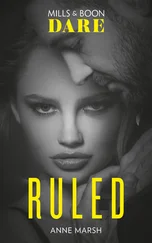Thomas Aldrich - The Story of a Bad Boy
Здесь есть возможность читать онлайн «Thomas Aldrich - The Story of a Bad Boy» — ознакомительный отрывок электронной книги совершенно бесплатно, а после прочтения отрывка купить полную версию. В некоторых случаях можно слушать аудио, скачать через торрент в формате fb2 и присутствует краткое содержание. Жанр: foreign_children, foreign_antique, foreign_prose, на английском языке. Описание произведения, (предисловие) а так же отзывы посетителей доступны на портале библиотеки ЛибКат.
- Название:The Story of a Bad Boy
- Автор:
- Жанр:
- Год:неизвестен
- ISBN:нет данных
- Рейтинг книги:5 / 5. Голосов: 1
-
Избранное:Добавить в избранное
- Отзывы:
-
Ваша оценка:
- 100
- 1
- 2
- 3
- 4
- 5
The Story of a Bad Boy: краткое содержание, описание и аннотация
Предлагаем к чтению аннотацию, описание, краткое содержание или предисловие (зависит от того, что написал сам автор книги «The Story of a Bad Boy»). Если вы не нашли необходимую информацию о книге — напишите в комментариях, мы постараемся отыскать её.
The Story of a Bad Boy — читать онлайн ознакомительный отрывок
Ниже представлен текст книги, разбитый по страницам. Система сохранения места последней прочитанной страницы, позволяет с удобством читать онлайн бесплатно книгу «The Story of a Bad Boy», без необходимости каждый раз заново искать на чём Вы остановились. Поставьте закладку, и сможете в любой момент перейти на страницу, на которой закончили чтение.
Интервал:
Закладка:
It is 1782. The French fleet is lying in the harbor of Rivermouth, and eight of the principal officers, in white uniforms trimmed with gold lace, have taken up their quarters at the sign of the William Pitt. Who is this young and handsome officer now entering the door of the tavern? It is no less a personage than the Marquis Lafayette, who has come all the way from Providence to visit the French gentlemen boarding there. What a gallant-looking cavalier he is, with his quick eyes and coal black hair! Forty years later he visited the spot again; his locks were gray and his step was feeble, but his heart held its young love for Liberty.
Who is this finely dressed traveler alighting from his coach-and-four, attended by servants in livery? Do you know that sounding name, written in big valorous letters on the Declaration of Independence—written as if by the hand of a giant? Can you not see it now? JOHN HANCOCK. This is he.
Three young men, with their valet, are standing on the doorstep of the William Pitt, bowing politely, and inquiring in the most courteous terms in the world if they can be accommodated. It is the time of the French Revolution, and these are three sons of the Duke of Orleans—Louis Philippe and his two brothers. Louis Philippe never forgot his visit to Rivermouth. Years afterwards, when he was seated on the throne of France, he asked an American lady, who chanced to be at his court, if the pleasant old mansion were still standing.
But a greater and a better man than the king of the French has honored this roof. Here, in 1789, came George Washington, the President of the United States, to pay his final complimentary visit to the State dignitaries. The wainscoted chamber where he slept, and the dining-hall where he entertained his guests, have a certain dignity and sanctity which even the present Irish tenants cannot wholly destroy.
During the period of my reign at Rivermouth, an ancient lady, Dame Jocelyn by name, lived in one of the upper rooms of this notable building. She was a dashing young belle at the time of Washington’s first visit to the town, and must have been exceedingly coquettish and pretty, judging from a certain portrait on ivory still in the possession of the family. According to Dame Jocelyn, George Washington flirted with her just a little bit—in what a stately and highly finished manner can be imagined.
There was a mirror with a deep filigreed frame hanging over the mantel-piece in this room. The glass was cracked and the quicksilver rubbed off or discolored in many places. When it reflected your face you had the singular pleasure of not recognizing yourself. It gave your features the appearance of having been run through a mince-meat machine. But what rendered the looking-glass a thing of enchantment to me was a faded green feather, tipped with scarlet, which drooped from the top of the tarnished gilt mouldings. This feather Washington took from the plume of his three-cornered hat, and presented with his own hand to the worshipful Mistress Jocelyn the day he left Rivermouth forever. I wish I could describe the mincing genteel air, and the ill-concealed self-complacency, with which the dear old lady related the incident.
Many a Saturday afternoon have I climbed up the rickety staircase to that dingy room, which always had a flavor of snuff about it, to sit on a stiff-backed chair and listen for hours together to Dame Jocelyn’s stories of the olden time. How she would prattle! She was bedridden—poor creature!—and had not been out of the chamber for fourteen years. Meanwhile the world had shot ahead of Dame Jocelyn. The changes that had taken place under her very nose were unknown to this faded, crooning old gentlewoman, whom the eighteenth century had neglected to take away with the rest of its odd traps. She had no patience with newfangled notions. The old ways and the old times were good enough for her. She had never seen a steam engine, though she had heard “the dratted thing” screech in the distance. In her day, when gentlefolk traveled, they went in their own coaches. She didn’t see how respectable people could bring themselves down to “riding in a car with rag-tag and bobtail and Lord-knows-who.” Poor old aristocrat The landlord charged her no rent for the room, and the neighbors took turns in supplying her with meals. Towards the close of her life—she lived to be ninety-nine—she grew very fretful and capricious about her food. If she didn’t chance to fancy what was sent her, she had no hesitation in sending it back to the giver with “Miss Jocelyn’s respectful compliments.”
But I have been gossiping too long—and yet not too long if I have impressed upon the reader an idea of what a rusty, delightful old town it was to which I had come to spend the next three or four years of my boyhood.
A drive of twenty minutes from the station brought us to the door-step of Grandfather Nutter’s house. What kind of house it was, and what sort of people lived in it, shall be told in another chapter.
Chapter Five—The Nutter House and the Nutter Family
The Nutter House—all the more prominent dwellings in Rivermouth are named after somebody; for instance, there is the Walford House, the Venner House, the Trefethen House, etc., though it by no means follows that they are inhabited by the people whose names they bear—the Nutter House, to resume, has been in our family nearly a hundred years, and is an honor to the builder (an ancestor of ours, I believe), supposing durability to be a merit. If our ancestor was a carpenter, he knew his trade. I wish I knew mine as well. Such timber and such workmanship don’t often come together in houses built nowadays.
Imagine a low-studded structure, with a wide hall running through the middle. At your right band, as you enter, stands a tall black mahogany clock, looking like an Egyptian mummy set up on end. On each side of the hall are doors (whose knobs, it must be confessed, do not turn very easily), opening into large rooms wainscoted and rich in wood-carvings about the mantel-pieces and cornices. The walls are covered with pictured paper, representing landscapes and sea-views. In the parlor, for example, this enlivening figure is repeated all over the room. A group of English peasants, wearing Italian hats, are dancing on a lawn that abruptly resolves itself into a sea-beach, upon which stands a flabby fisherman (nationality unknown), quietly hauling in what appears to be a small whale, and totally regardless of the dreadful naval combat going on just beyond the end of his fishing-rod. On the other side of the ships is the main-land again, with the same peasants dancing. Our ancestors were very worthy people, but their wall-papers were abominable.
There are neither grates nor stoves in these quaint chambers, but splendid open chimney-places, with room enough for the corpulent back-log to turn over comfortably on the polished andirons. A wide staircase leads from the hall to the second story, which is arranged much like the first. Over this is the garret. I needn’t tell a New England boy what—a museum of curiosities is the garret of a well-regulated New England house of fifty or sixty years’ standing. Here meet together, as if by some preconcerted arrangement, all the broken-down chairs of the household, all the spavined tables, all the seedy hats, all the intoxicated-looking boots, all the split walking-sticks that have retired from business, “weary with the march of life.” The pots, the pans, the trunks, the bottles—who may hope to make an inventory of the numberless odds and ends collected in this bewildering lumber-room? But what a place it is to sit of an afternoon with the rain pattering on the roof! What a place in which to read Gulliver’s Travels, or the famous adventures of Rinaldo Rinaldini!
My grandfather’s house stood a little back from the main street, in the shadow of two handsome elms, whose overgrown boughs would dash themselves against the gables whenever the wind blew hard. In the rear was a pleasant garden, covering perhaps a quarter of an acre, full of plum-trees and gooseberry bushes. These trees were old settlers, and are all dead now, excepting one, which bears a purple plum as big as an egg. This tree, as I remark, is still standing, and a more beautiful tree to tumble out of never grew anywhere. In the northwestern corner of the garden were the stables and carriage-house opening upon a narrow lane. You may imagine that I made an early visit to that locality to inspect Gypsy. Indeed, I paid her a visit every half-hour during the first day of my arrival. At the twenty-fourth visit she trod on my foot rather heavily, as a reminder, probably, that I was wearing out my welcome. She was a knowing little pony, that Gypsy, and I shall have much to say of her in the course of these pages.
Читать дальшеИнтервал:
Закладка:
Похожие книги на «The Story of a Bad Boy»
Представляем Вашему вниманию похожие книги на «The Story of a Bad Boy» списком для выбора. Мы отобрали схожую по названию и смыслу литературу в надежде предоставить читателям больше вариантов отыскать новые, интересные, ещё непрочитанные произведения.
Обсуждение, отзывы о книге «The Story of a Bad Boy» и просто собственные мнения читателей. Оставьте ваши комментарии, напишите, что Вы думаете о произведении, его смысле или главных героях. Укажите что конкретно понравилось, а что нет, и почему Вы так считаете.












